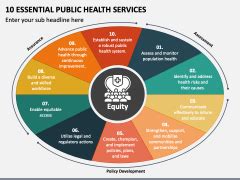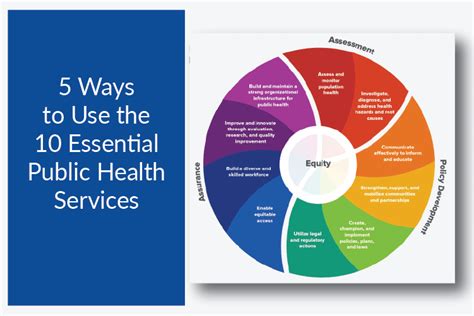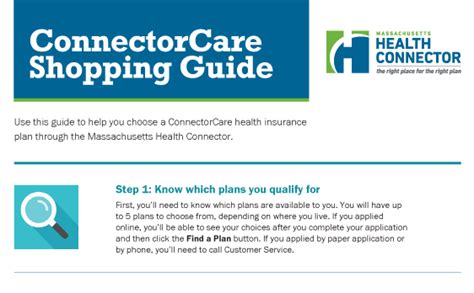The foundation of public health is built upon a set of essential services that aim to protect and promote the well-being of populations. These services are designed to address the social, environmental, and economic determinants of health, ensuring that individuals and communities have the opportunity to thrive. The Ten Essential Public Health Services, as outlined by the Core Public Health Functions Steering Committee in 1994, provide a framework for public health practice. This framework has been widely adopted and serves as a cornerstone for public health initiatives globally.
Understanding the Ten Essential Public Health Services

The Ten Essential Public Health Services are categorized into three core functions: assessment, policy development, and assurance. These functions work together to ensure that public health services are comprehensive, effective, and responsive to the needs of the population. The three core functions are:
- Assessment: This involves monitoring health status to identify community health problems, diagnosing and investigating health problems and health hazards in the community, and informing, educating, and empowering people about health issues.
- Policy Development: This function focuses on developing policies and plans that support individual and community health efforts, and it involves mobilizing community partnerships to identify and solve health problems.
- Assurance: Assurance ensures that all populations have access to appropriate and cost-effective care, including health promotion and disease prevention services, and evaluates the effectiveness of these services.
Breaking Down the Ten Essential Public Health Services
Within these core functions, the Ten Essential Public Health Services are defined as follows:
- Monitor health status to identify community health problems: This involves the systematic collection, analysis, and interpretation of data to understand health trends and identify areas for improvement.
- Diagnose and investigate health problems and health hazards in the community: Public health professionals use epidemiological methods to investigate health issues, determine their causes, and develop strategies for control and prevention.
- Inform, educate, and empower people about health issues: This service focuses on providing accurate and accessible health information to the public, enabling individuals to make informed decisions about their health.
- Mobilize community partnerships to identify and solve health problems: Building coalitions and partnerships with community organizations, businesses, and government agencies is crucial for leveraging resources and expertise to address health issues.
- Develop policies and plans that support individual and community health efforts: Policy development is essential for creating an environment that promotes health and wellness, through laws, regulations, and community standards.
- Enforce laws and regulations that protect health and ensure safety: Public health agencies are responsible for ensuring compliance with health and safety regulations, protecting the public from harmful practices and environments.
- Link people to needed personal health services and assure the provision of health care when otherwise unavailable: This service ensures that individuals have access to essential health care services, including preventive care, treatment, and management of health conditions.
- Assure a competent public health and personal healthcare workforce: Developing and maintaining a skilled workforce is critical for delivering high-quality public health services and responding to emerging health issues.
- Evaluate effectiveness, accessibility, and quality of personal and population-based health services: Continuous evaluation is necessary to assess the impact of public health services, identify areas for improvement, and ensure that services are meeting the needs of the population.
- Research for new insights and innovative solutions to health problems: Public health research is vital for understanding the causes of health issues, developing new interventions, and improving the effectiveness of public health services.
Key Points
- The Ten Essential Public Health Services are built upon three core functions: assessment, policy development, and assurance.
- These services are designed to address the social, environmental, and economic determinants of health.
- Public health professionals play a critical role in monitoring health status, diagnosing health problems, and informing the public about health issues.
- Developing policies and plans that support individual and community health efforts is essential for promoting health and wellness.
- Ensuring access to personal health services and evaluating the effectiveness of these services are critical components of the Ten Essential Public Health Services.
| Core Function | Essential Service |
|---|---|
| Assessment | Monitor health status to identify community health problems |
| Assessment | Diagnose and investigate health problems and health hazards in the community |
| Policy Development | Develop policies and plans that support individual and community health efforts |
| Assurance | Link people to needed personal health services and assure the provision of health care when otherwise unavailable |
| Assurance | Evaluate effectiveness, accessibility, and quality of personal and population-based health services |

The implementation of the Ten Essential Public Health Services requires a multifaceted approach, involving government agencies, community organizations, healthcare providers, and individuals. By working together and leveraging resources, public health professionals can effectively address health disparities, promote health equity, and improve the overall health and well-being of populations.
As public health continues to evolve in response to emerging health issues and technological advancements, the Ten Essential Public Health Services provide a foundational framework for guiding practice and policy. These services underscore the importance of a comprehensive and collaborative approach to public health, recognizing that health is influenced by a wide range of factors beyond the healthcare system itself.
What are the core functions of the Ten Essential Public Health Services?
+The core functions are assessment, policy development, and assurance. These functions work together to ensure that public health services are comprehensive, effective, and responsive to the needs of the population.
Why is it important to monitor health status and diagnose health problems in the community?
+Monitoring health status and diagnosing health problems are crucial for identifying community health issues, understanding their causes, and developing targeted interventions to address them.
How do public health services ensure that all populations have access to appropriate and cost-effective care?
+Public health services work to link people to needed personal health services, assure the provision of health care when otherwise unavailable, and evaluate the effectiveness, accessibility, and quality of these services to ensure that they meet the needs of the population.
In conclusion, the Ten Essential Public Health Services provide a vital framework for public health practice, emphasizing the importance of a comprehensive and multifaceted approach to promoting health and wellness. By understanding and implementing these services, public health professionals can work towards creating healthier communities, addressing health disparities, and improving the overall quality of life for individuals and populations.


